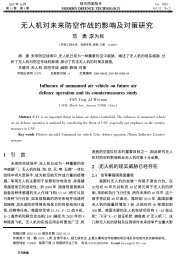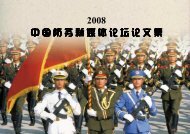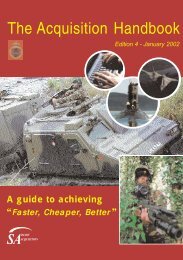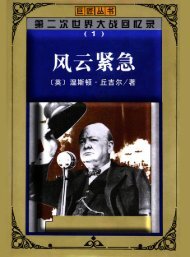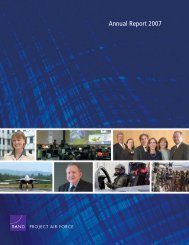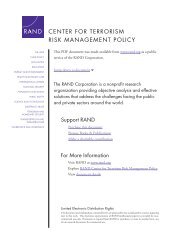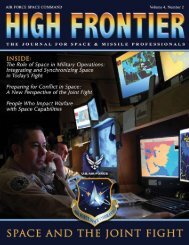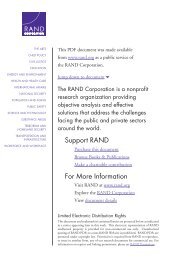How Terrorist Groups End - RAND Corporation
How Terrorist Groups End - RAND Corporation
How Terrorist Groups End - RAND Corporation
You also want an ePaper? Increase the reach of your titles
YUMPU automatically turns print PDFs into web optimized ePapers that Google loves.
<strong>End</strong>ing the “War” on Terrorism 133<br />
sively on a very popular desire for revenge . . . is likely to provide too<br />
little liberty and unity to be a sensible policy.” 24 Since terrorist groups<br />
need to move money to multiple cells to help sustain their operations,<br />
attacking their finances or following financial leads once terrorists are<br />
captured has provided effective results. But there are challenges. The<br />
financial system known in the Islamic world as hawala exists outside<br />
the regulated international financial system. Individuals in Islamic<br />
communities around the world serve as go-betweens and facilitate the<br />
transfer of cash that is not taxed, recorded, or registered by banks.<br />
These informal hawala networks remain largely outside government<br />
control, and monitoring them presents a significant challenge to closing<br />
terrorist financial exchanges. 25<br />
Countering Ideology<br />
Counterterrorism is just as much about hearts and minds as it is about<br />
policing and intelligence. It requires taking calculated actions that<br />
do not alienate Muslims. And it also requires effectively countering<br />
the ideology and messages of terrorist groups through what is often<br />
referred to as information operations. This includes the use of a variety<br />
of strategies and tools to counter, influence, or disrupt the message and<br />
operation of terrorist groups. 26 Local groups are almost always better<br />
placed to conduct information operations than the United States is. In<br />
addition to building local police and intelligence capacity, dealing with<br />
al Qa’ida also requires countering its ideological appeal. This includes<br />
countering the continued resonance of its message, its ability to attract<br />
recruits and replenish its ranks, and its capacity for continual regeneration<br />
and renewal. To do so, the United States needs to better understand<br />
the mind-set and minutia of the al Qa’ida movement, the ani-<br />
24 Philip B. Heymann, Terrorism and America: A Commonsense Strategy for a Democratic<br />
Society, Cambridge, Mass.: MIT Press, 1998, p. 153.<br />
25 On challenges in countering the hawala system, see Gary Berntsen, First Directive,<br />
unpublished manuscript, August 2007.<br />
26 On the use of information operations in a military context, see, for example, USJFCOM<br />
(2006).




